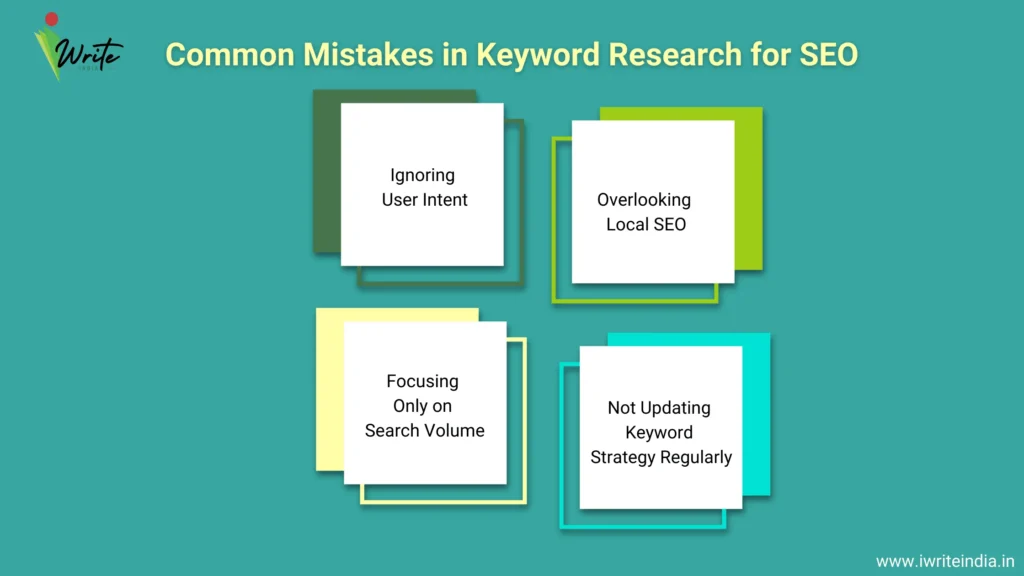
Keyword research for SEO is all about figuring out the exact words and phrases people use when searching online. Think about it—whenever you type something into Google, you’re using keywords. Now imagine knowing exactly what your audience is typing. That’s the power of keyword research.
By finding these terms and weaving them naturally into your content, you’re not just improving your chances of showing up on search engine results (hello, higher rankings!), but also creating content that feels like it was made just for your readers. It’s like speaking their language.
Keyword research isn’t just a technical thing; it’s the foundation of a good SEO strategy. It helps you understand what your audience wants so you can deliver it. Without it, even the most amazing content might not get seen. And what’s the point of great content if no one knows it’s there?
Why is Keyword Research for SEO Important?

- Boosts Organic Traffic: Using targeted keywords ensures your website appears in search results for relevant queries.
- Drives Qualified Leads: Attract users genuinely interested in your offerings.
- Improves ROI: A well-optimized website saves marketing dollars by reducing reliance on paid ads.
- Enhances User Experience: Content aligned with user intent resonates better, keeping visitors engaged longer.
A 2024 study by Ahrefs reveals that 68% of online activities begin with a search engine, with 53% of the traffic driven by organic searches. This underscores the critical importance of keyword research in SEO strategies.
Types of Keywords in SEO

Understanding the types of keywords is essential for creating an effective SEO strategy tailored to your niche.
1. Short-Tail Keywords
Broad, high-volume keywords with one or two words.
-
Example: “Digital Marketing”
-
Best For: Brand awareness, high-competition niches.
2. Long-Tail Keywords
Specific phrases with three or more words targeting niche audiences.
-
Example: “Affordable digital marketing services in Delhi”
-
Best For: Blogs, niche websites, higher conversions.
3. Geo-Targeted Keywords
-
Example: “SEO agency in Delhi”
-
Best For: Local businesses and services.
4. Transactional Keywords
Search terms indicating intent to purchase.
-
Example: “Buy SEO tools”
-
Best For: E-commerce and SaaS.
5. Informational Keywords
Queries seeking knowledge or answers.
-
Example: “What is keyword research?”
-
Best For: Blogs and authority-building content.
How to Perform Keyword Research for SEO?
1. Understand Your Audience
Start by identifying your target audience. Take into account their age, interests, challenges, and digital habits. Tools like Google Analytics and buyer persona templates can provide valuable insights.
2. Brainstorm Core Topics
List down topics that align with your brand and audience interests. For instance, if you offer digital marketing services in Delhi, potential topics could include “local SEO strategies” or “benefits of content marketing.”
3. Use a Keyword Research Tool
Keyword research tools simplify the process. Here are some popular ones:
- Google Keyword Planner: A free option to find keywords and their search volumes.
- SEMrush: Ideal for competitive analysis and keyword tracking.
- Ahrefs: Comprehensive data on keyword difficulty and related terms.
- Answer the Public: Question keyword data on real-time searches.
Using these tools, identify:
- Search Volume: The frequency with which a keyword is searched each month.
- Keyword Difficulty (KD): How competitive the keyword is.
- Cost Per Click (CPC): Useful if you’re running paid campaigns alongside organic efforts.
4. Analyze Competitor Keywords
Research your competitors’ top-ranking pages to identify keywords they’re targeting. SEMrush and Ahrefs offer tools to spy on competitor strategies, giving you an edge.
5. Focus on Long-Tail Keywords
Long-tail keywords, such as “top digital marketing services in Delhi,” are highly specific and face less competition compared to broad terms. They often indicate purchase intent, driving conversions.
6. Prioritize Intent Over Volume
A keyword with high search volume isn’t always the best. Focus on intent-based keywords. For example, “how to do keyword research for SEO” suggests a user seeking actionable advice aligning with your content goals.
Common Mistakes in Keyword Research for SEO

1. Ignoring User Intent
Keywords without aligning with user intent can lead to high bounce rates. Always consider whether your content satisfies the query.
2. Overlooking Local SEO
If you’re offering services like a digital marketing agency in Delhi, incorporate location-specific keywords. This boosts visibility among your local audience.
3. Focusing Only on Search Volume
Keywords with low competition but decent intent often perform better than high-volume keywords.
4. Not Updating Keyword Strategy Regularly
Search trends evolve. Keep your keyword list updated frequently to maintain relevance.
Creating Content That Ranks
After identifying the right keywords, integrate them naturally into your content. Using too many keywords can harm your rankings and attract penalties from search engines.
- Page Titles: Use your primary keyword at the beginning.
- Meta Descriptions: Include primary and secondary keywords.
- Headings and Subheadings: Structure content around key terms.
- Alt Text: Use descriptive keywords for images.
- Body Content: Maintain a keyword density of 1-1.5% for optimal SEO.
Which Keywords Matter Most by Niche?
| Niche | Keyword Types | Examples |
| Blogs | Informational, Long-Tail | “How to do keyword research for SEO” |
| E-commerce | Transactional | “Buy digital marketing tools” |
| Local Businesses | Geo-Targeted | “Digital marketing services in Delhi” |
| SaaS | Branded, Short-Tail, Transactional | “Best SEO software” |
5-Step Guide to Conducting Keyword Research for SEO
- Understand your audience’s needs and intent.
- Use tools like SEMrush to analyze search volume and difficulty.
- Identify long-tail keywords with low competition.
- Research competitor strategies to find gaps.
- Regularly refine your keyword list based on trends.
Partner with iWrite India for Keyword Rank
Mastering keyword research for SEO is pivotal to your digital growth. At iWrite India, we specialize in content marketing and digital marketing services in Delhi, ensuring your brand ranks at the top.
Ready to boost your digital presence? Visit www.iwriteindia.in, and let’s create a strategy that delivers results!
FAQs About Keyword Research for SEO
What is the role of keywords in SEO?
Keywords connect user search queries to the content you offer. They help search engines understand your page’s context, boosting visibility.
What’s the best way to select a keyword research tool?
Choose a tool based on your needs. For beginners, free tools like Google Keyword Planner suffice. Professionals may benefit from Ahrefs or SEMrush for advanced insights.
Can I do keyword research for SEO without tools?
Yes, brainstorming topics, analyzing Google autocomplete suggestions, and reviewing competitors’ content can yield valuable insights without tools.
What are seed keywords in keyword research?
Seed keywords are the foundation of keyword research. They are broad terms that help generate related keywords through tools.
How often should I update my keyword research strategy?
Review your strategy quarterly to align with shifting trends, search behaviors, and algorithm updates.


